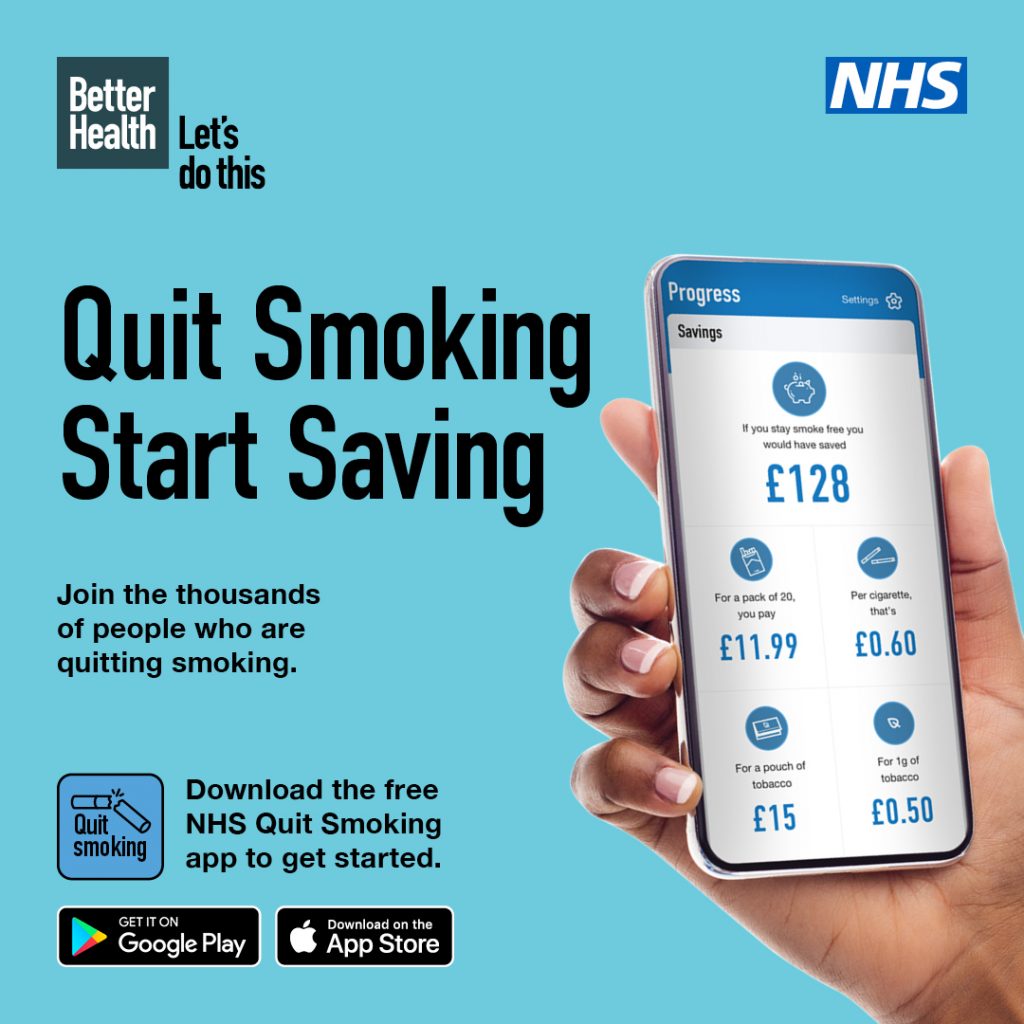It’s Never Too Late to Quit Smoking
Today is the 40th anniversary of No Smoking Day.
It’s a time for us to unite and offer encouragement and support to those on their quitting journey.
When the first No Smoking Day was held in 1984, around 1 in 3 adults smoked.
That number has been falling since and now around 1 in 8 adults smoke. But that still means there are over 5.3 million regular smokers in England.
Read on for what happens when you stop smoking, the impact of smoking on your health and the NHS, and how to get support to quit.
What happens when you quit smoking
You might not think it, but you’ll start to feel the benefits of stopping smoking almost immediately. This animation explains what happens.
- Twenty minutes after your last cigarette, your pulse will be returning to normal
- Eight hours late, your oxygen levels are recovering, and the harmful carbon monoxide in your blood has halved
- After 48 hours, your body has flushed out all carbon monoxide
- After 72 hours, you’ll be breathing easier
- Between two and twelve weeks later, your blood is pumping to your heart and muscles better
- After three to nine months, your lungs are working 10% better
- One year smokefree means your risk of a heart attack has halved
- After ten years, your risk of death from lung cancer has halved
- Fifteen years smokefree means your risk of a heart attack is the same as someone who has never smoked
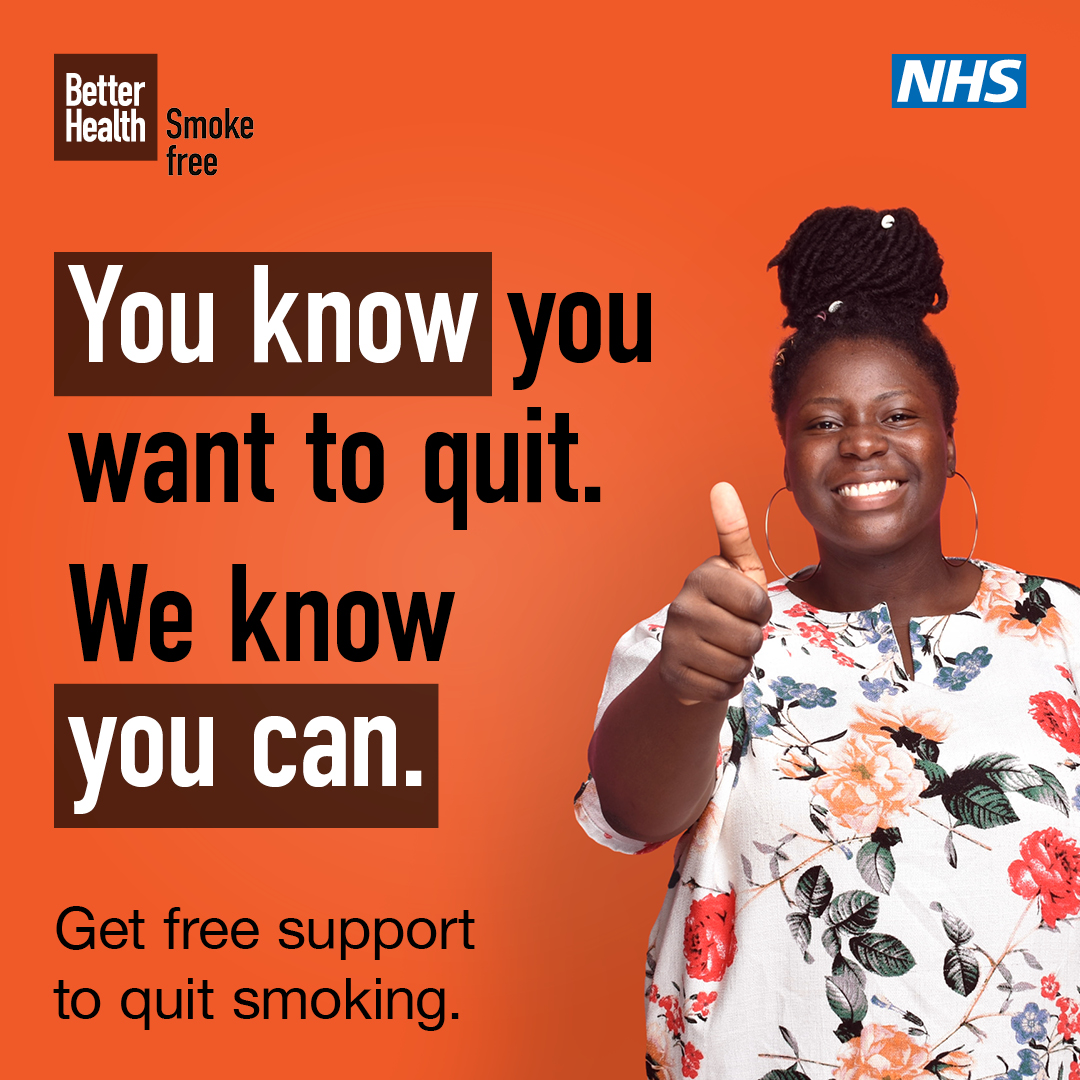
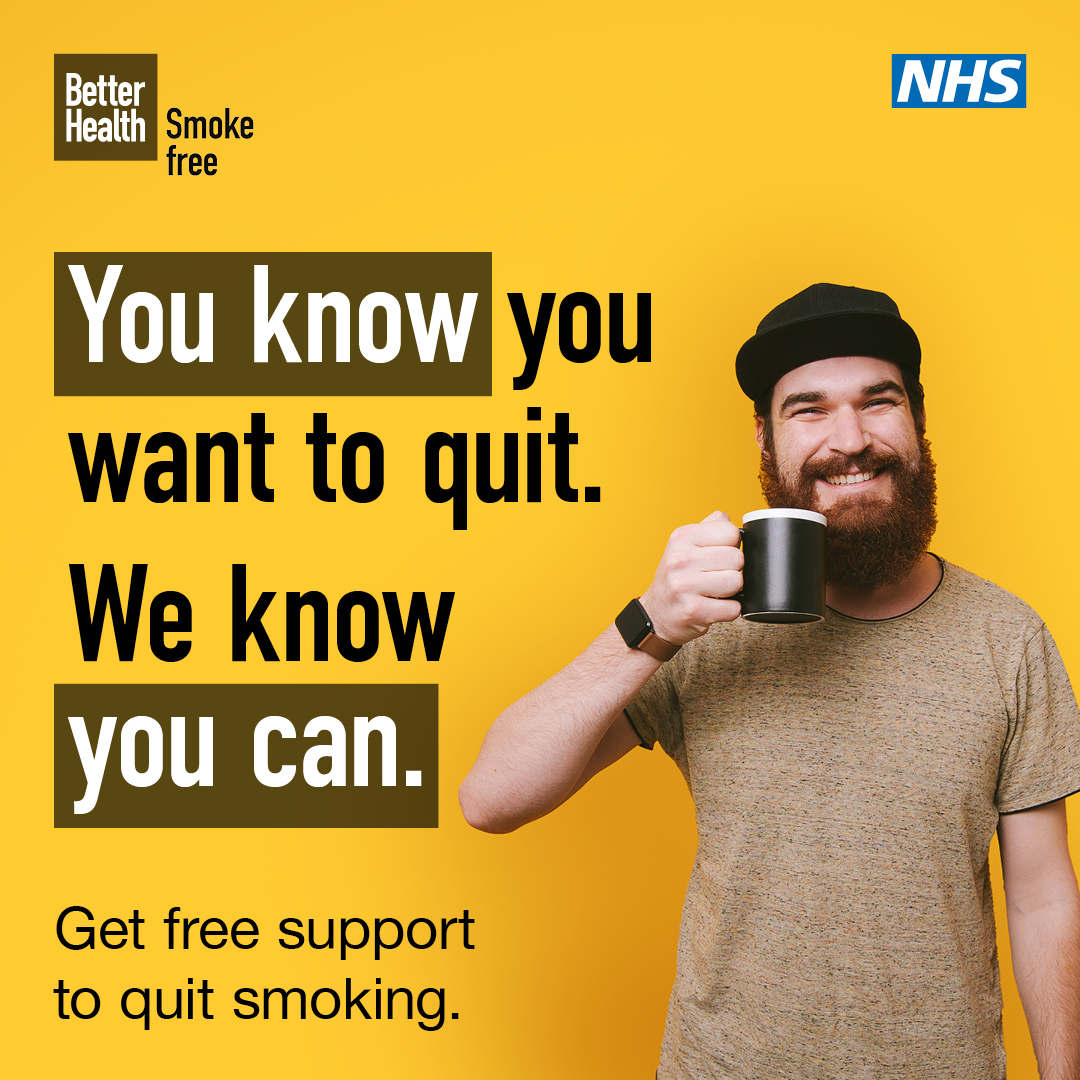
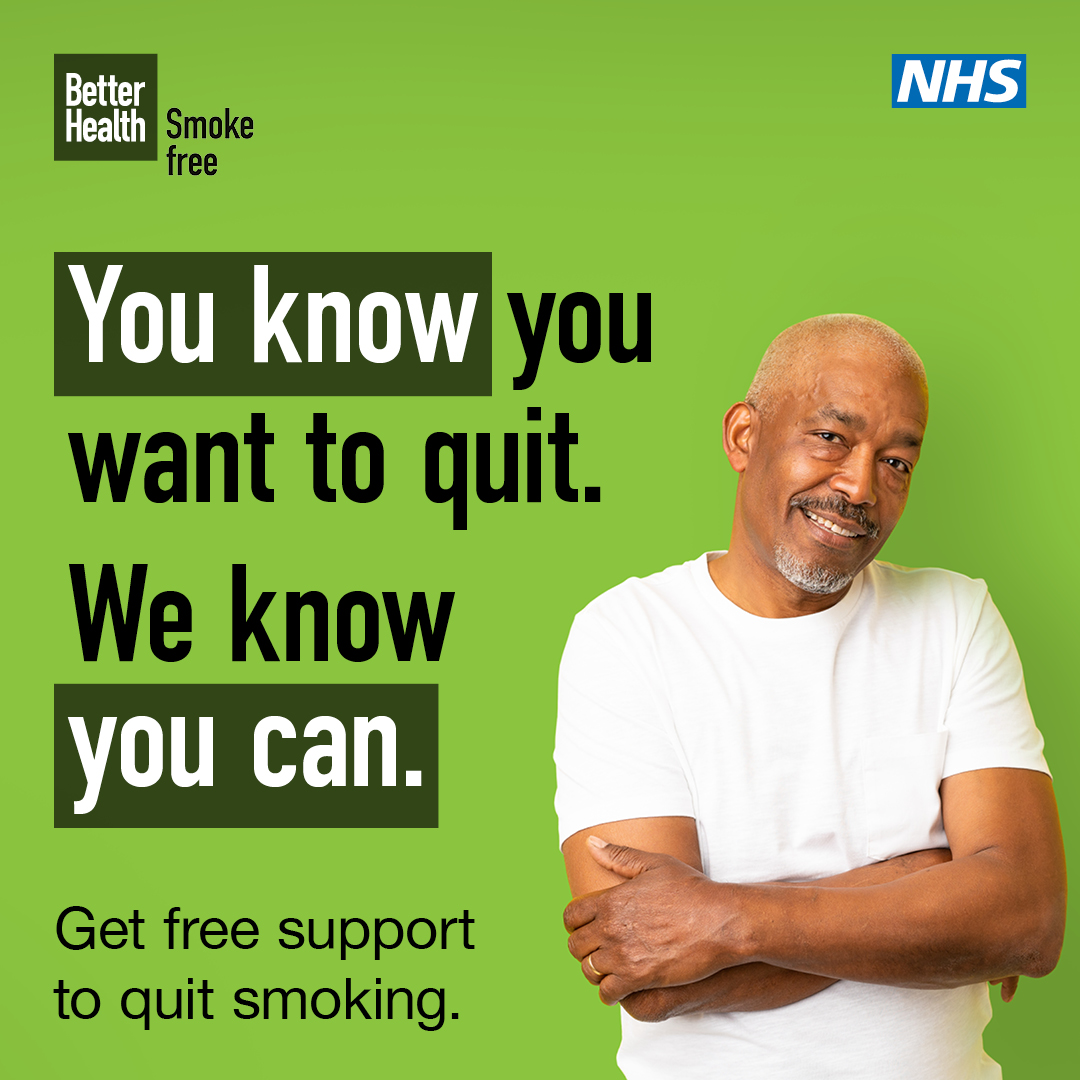
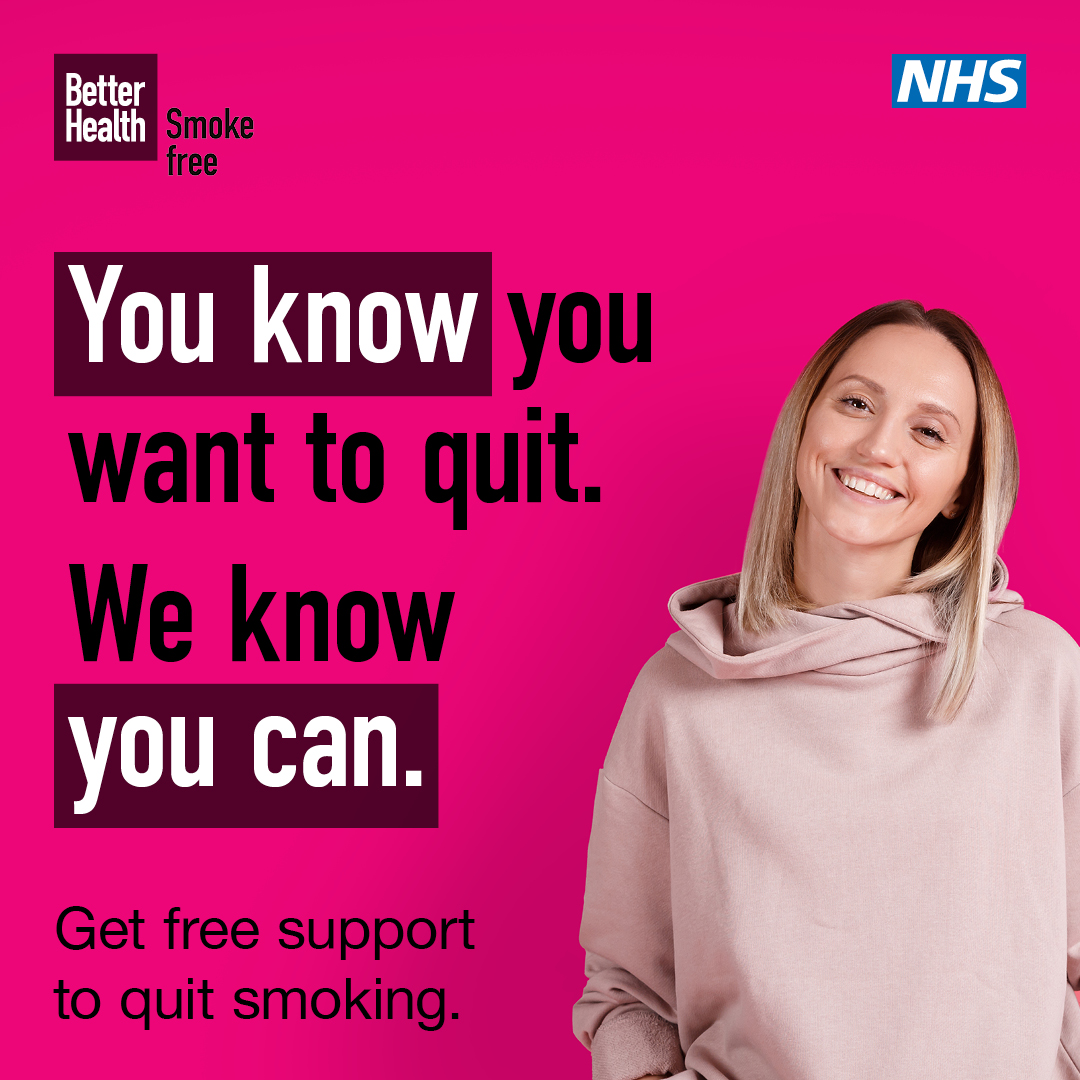
The Impact of Smoking
Smoking is still the single biggest preventable cause of death in England. Up to two in three smokers will die because of long-term smoking.
Almost every minute, someone is admitted to hospital with a smoking-related disease.
In 2022-23, there were an estimated 400,000 hospital admissions in England due to smoking, and one in four hospital patients is a smoker.
Despite the clear health risks of smoking, it’s estimated that nearly 50 million cigarettes are smoked every day in England – around nine cigarettes a day per smoker.
However, smoking rates have reduced considerably since the first year of No Smoking Day 40 years ago, and this year’s No Smoking Day campaign aims to continue this pattern and encourage people to quit by offering free, proven NHS resources and advice.
Support to go Smokefree
With the proper support, you’re up to three times more likely to quit smoking for good.
The NHS has various options to support everyone, from information on aids to help you stop smoking and local services to the NHS Quit Smoking App.
Follow the link below to explore what support is out there and what will be best for you.
